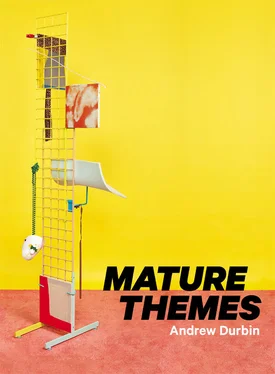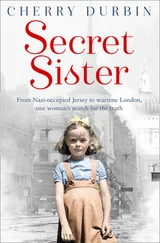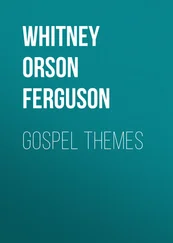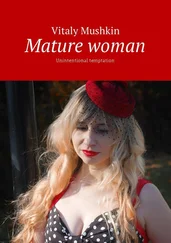Andrew Durbin - Mature Themes
Здесь есть возможность читать онлайн «Andrew Durbin - Mature Themes» весь текст электронной книги совершенно бесплатно (целиком полную версию без сокращений). В некоторых случаях можно слушать аудио, скачать через торрент в формате fb2 и присутствует краткое содержание. Год выпуска: 2014, Издательство: Nightboat Books, Жанр: Современная проза, на английском языке. Описание произведения, (предисловие) а так же отзывы посетителей доступны на портале библиотеки ЛибКат.
- Название:Mature Themes
- Автор:
- Издательство:Nightboat Books
- Жанр:
- Год:2014
- ISBN:нет данных
- Рейтинг книги:4 / 5. Голосов: 1
-
Избранное:Добавить в избранное
- Отзывы:
-
Ваша оценка:
- 80
- 1
- 2
- 3
- 4
- 5
Mature Themes: краткое содержание, описание и аннотация
Предлагаем к чтению аннотацию, описание, краткое содержание или предисловие (зависит от того, что написал сам автор книги «Mature Themes»). Если вы не нашли необходимую информацию о книге — напишите в комментариях, мы постараемся отыскать её.
is a hybrid text of poetry, art criticism, and memoir focused on the subject of disingenuity — and what constitutes "personal experience" both online and IRL when to "go deep" in a culture of so many unreliable communication technologies is to resend a text at 3 AM.
Throughout the book, Durbin’s voice mutates into others in order to uncover the fading specters of meaning buried under the pristine surfaces of art and Hollywood, locating below them the other realities that structure our experience of both.
Mature Themes — читать онлайн бесплатно полную книгу (весь текст) целиком
Ниже представлен текст книги, разбитый по страницам. Система сохранения места последней прочитанной страницы, позволяет с удобством читать онлайн бесплатно книгу «Mature Themes», без необходимости каждый раз заново искать на чём Вы остановились. Поставьте закладку, и сможете в любой момент перейти на страницу, на которой закончили чтение.
Интервал:
Закладка:
So, like, I know I like
to get tied down
and jerked off. And for my partner,
that’s really, really clear,
you know? Frieze
is kind of like that, too,
totally honest
about its tradeshow quality,
even if that honesty betrays an unhappiness
not quite depressed in its paralyzed tears
but certainly deprived of recourse
to the promissory world of liberation
it might have once suggested.
Flow my tears, the painter said. Or, as Majoli once wrote, “I only paint actual experiences, not fantasies. Within that I elaborate and alter things in the environment, but the activities and the rooms and objects in the interiors are ‘factual.’ So in this way I view the paintings as documentary, as a way for me to memorialize events and relationships. The male sex scenes began when a close friend of mine started to go to underground pissparties and became increasingly involved with S/M sex. I had always been fascinated by his anonymous encounters with men. I envied the nonverbal quality and the absolute sexual abandon of his experiences. AIDS confused all this — and I began to wonder about this decision to pursue this despite the consequences. I understood his desire to ‘connect’ through sex regardless of the cost. I viewed these paintings as religious, although I still can’t explain this. As I continued to paint I slowly realized that I was identifying, uncomfortably so, with the masochist in the composition. I switched reluctantly to images of myself when I fell deeply in love with a woman and felt compelled to paint her after our relationship ended. These autobiographical paintings all involve dildos. Right now, I’m working on a round painting in which I’m fucking myself with one dildo while sucking on a double-headed dildo. The feeling I want to express is of a huge emptiness and isolation. I haven’t figured out why dildos are the central ‘props’ in those paintings. I think it has to do with this false tool — that the mind wants to make real. Using a fake device to try to communicate with a lover or comfort oneself — so in a way this communication or connection is ultimately doomed. The body fragments are self-portraits that I began when I first painted the scenes. In this way I felt it was like a conversation between the intimacy of the details and the voyeuristic, removed quality of the scenes. I feel that both bodies of work concern the same issues — the body fragments address mortality and vulnerability more directly. I chose parts of the body that seemed particularly fragile. The parts are either cut or in a state of exposure to describe the perils of love and simultaneously, the compulsion to love.”
I’m sitting in a café
in Brooklyn, texting James La Marre,
listening to Ariel Pink’s
“Symphony of a Nymph,”
writing about Monica Majoli.
It’s late spring,
surprisingly brisk
for this rainy mid-May. I guess
I’m so over “it,”
another season’s change
so vexed as to render
its character meaningless
in its punishing irregularity,
over even the famous path of trees
that line Eastern Parkway,
where I sat texting this morning
below the lush panoply
of sky slinking
over the concrete.
I texted Ben,
I texted Kate,
I called my mom,
and yet the simplicity of these actions
failed to regulate my sense
of their eventual removal
from the things I do. Looking back,
doesn’t everything seem cryptic,
sealed in its place
a symbol of the near impossible exchange
between times once alike but denied
the way back to one another,
like the scrunched face of Rafael Nadal
when he lost Wimbledon,
his face no longer legible as a holy thing,
I thought wow, Rafael,
if I could be there for you, I would.
Anyway, wherever I am
I’m not with you,
whoever you in the plural are,
by now I’m all the way down the line
into garbage time,
embalmed in its vision
of an apocalypse
tearing up what’s left of
life in universe zero,
where perhaps our love
will be stored
on a hard drive
forever, fastened
to its post-physical life away
from things as they really are.
Maybe it’s the afterglow of the end
in Monica Majoli’s paintings,
a light which dissolves us
in one form only to restructure us
in another. Who is my preserver?
Descended into this
crystal hard drive,
I am stationed among the nodes
asserting me in the various networks
that have become feeling .
Soon the one world
we have found flattened
in its emergent disunity
will annihilate itself
in a compromise with fate
and the physics
of this cooling universe
dissipating so slowly
it will be like nothing
ever changed.
I WENT DOWN TO THE BEACH
I went down to the beach and wrote a book called The Beach , inspired by Heart of Darkness , a novel about the perils of inadequately supervised interaction between codified behavior and the Other. To put it more directly, I wrote a novel based on a novel about the degradation of white leadership in the face of non-Western local practice exoticized in fantasy rather than observation. Exterior: the jungle. Interior: Dark night of the white man’s soul. In my novel about the beach, which takes place in a remote region of Thailand, a boy is given a map by a man named Daffy Duck that points to a beach where few people have ever been, largely because of how treacherous the path to it is. Richard, the main character, leads a French couple and later two Harvard graduates on an adventure to the beach, an adventure in which they encounter frictional social elements (like an evil marijuana plantation) that attempt to deter them from traveling to the beach. Finally, they jump off a waterfall, float down a river, and meet a highly organized totalitarian society of expatriates ruled by an American woman named Sal. This is the most significant reference to Heart of Darkness . Their time at the beach is filled with curious events that create a compelling plot of intrigue, like when they run out of rice and Jed, “the enigmatic loner of the group,” volunteers to go for a rice run. Richard, accompanying him, realizes it is time to escape. Tribe members die. Social complexities contribute to pain, paranoia, and euthanasia. I would describe all of this in greater detail but you have to read my book The Beach . To escape, Richard spikes the tribe’s stew one night with marijuana so that everyone is incapacitated by an “overloaded high.” He flees with the French couple and Jed, into the night, “back to civilization.”
I went down to the beach and adapted my book called The Beach for the big screen, inspired by Apocalypse Now , a movie about the perils of inadequately supervised interaction between codified behavior (played by Marlon Brando) and the Other (played by a number of underpaid local Filipino workers). To put it more directly, I adapted my novel using a film about the degradation of white leadership in the face of non-Western local practice exoticized in fantasy rather than observation. Exterior: the jungle. Interior: Dark night of Marlon Brando’s soul. In the film version of my novel about the beach, which takes place in a remote region of Thailand, a boy (played by Leonardo DiCaprio) is given a map by a man named Daffy Duck (played by Robert Carlyle) that points to a beach where few people have ever been, largely because of how treacherous the path to it is. Richard, the main character, leads a French couple (played by Virginie Ledoyen and Guillaume Canet) and later two American surfers on an adventure to the beach, an adventure in which they encounter frictional social elements (like an evil marijuana plantation) that attempt to deter them from traveling to the beach. Finally, they jump off a waterfall, float down a river, and meet a highly organized totalitarian society of expatriates ruled by an American woman named Sal (played by Tilda Swinton). This is the most significant reference to Apocalypse Now . Their time at the beach is filled with curious events that create a compelling plot of intrigue, like when Christo (played by Staffan Kihlbom) is injured and Sal volunteers to go to the mainland for medical supplies. Richard realizes it is time to escape. Tribe members die. Social complexities contribute to pain, paranoia, and euthanasia. I would describe all of this in greater detail but you have to see my movie The Beach . To escape, Richard flees the tribe after the marijuana farmers violently disrupt the community’s activities. He flees with Sal, into the night, “back to civilization.”
Читать дальшеИнтервал:
Закладка:
Похожие книги на «Mature Themes»
Представляем Вашему вниманию похожие книги на «Mature Themes» списком для выбора. Мы отобрали схожую по названию и смыслу литературу в надежде предоставить читателям больше вариантов отыскать новые, интересные, ещё непрочитанные произведения.
Обсуждение, отзывы о книге «Mature Themes» и просто собственные мнения читателей. Оставьте ваши комментарии, напишите, что Вы думаете о произведении, его смысле или главных героях. Укажите что конкретно понравилось, а что нет, и почему Вы так считаете.











